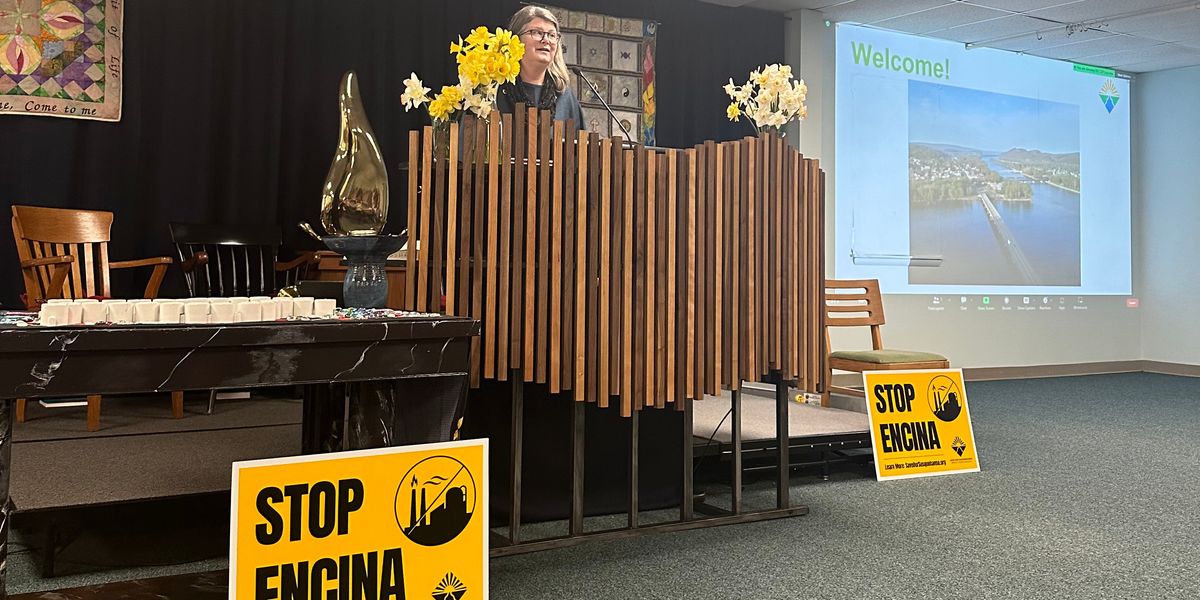
Plans to build what would have been one of the largest chemical recycling plants in the country in Pennsylvania were canceled this week.
A Texas-based company called Encina first announced plans to build a facility that would convert waste plastic into chemicals that could be used to create more plastic in Point Township, Pennsylvania, along the banks of the Susquehanna River in 2022.
The project, which would have been the first chemical recycling facility in the state, faced intense opposition from residents in Point Township and surrounding communities due to concerns about toxic air and water emissions, negative climate impacts, and concerns that chemical recycling fails to actually reduce plastic waste.
On April 2, a local borough council voted unanimously to “strenuously and unequivocally” oppose the plant, and on April 18, Encina announced in a press release that the company “has decided not to proceed” with the construction of the plant, but will continue to pursue similar plants in other locations.
“We applaud former Pennsylvania Governor Tom Wolf and the Pennsylvania General Assembly who ushered in ground-breaking legislation classifying advanced recycling technologies correctly as those that fall under the purview of manufacturing,” Encina CEO Dave Roesser, said in a statement announcing the move.
Pennsylvania is one of 24 states that has changed the way it categorizes this type of facility to reduce permitting requirements and regulatory oversight, a change that plastic industry trade groups have lobbied for. When Pennsylvania changed its law in 2020, Encina was the only company that applied to construct a chemical recycling facility in the state, so the bill was perceived as being passed specifically to benefit the company.
“While we were excited about the many attractive opportunities for expansion and growth in Point Township,” Encina’s statement continues, “we have determined that our current strategic objectives and long-term goals will be better met through this decision.”
Sandy Field, a member of the group Save Our Susquehanna, which opposed the plant, said in a statement, “This project threatened the region’s clean air and water and would have harmed our way of life in the area, especially for the people who live next to the proposed facility.”
In response to the news, Save our Susquehanna emailed its members to say, “It’s official — Encina is pulling out!!! We won! we won!”
“Community members stood up and spoke out about these unacceptable risks, and Save our Susquehanna is thrilled that Encina will not be building their toxic chemical plant in our area,” Field said. “But we do not wish this plant on others, and we will continue to warn other communities about chemical recycling and the danger it poses to communities.”
EHN previously covered the proposed Encina plant, along with similar proposals in West Virginia and Ohio. There are proposals in the works for similar chemical recycling plants across the country. According to a 2023 report by the nonprofit organization Beyond Plastics, 11 such facilities had already been constructed in the U.S. as of September 2023, with one closing this year, but few are operating at full capacity or profitably.
“We do not wish this plant on others, and we will continue to warn other communities about chemical recycling and the danger it poses to communities.” – Sandy Field, Save Our Susquehanna
Alex Bomstein, executive director of the Clean Air Council, a nonprofit advocacy group, said Encina’s cancellation of its Point Township plant should serve as a “wake-up call to elected officials.”
“The significance of this win cannot be overstated,” Bomstein said in a statement. “But the fight is not over. Toxic chemical recycling is a false solution to the plastics crisis. It doesn’t belong in Point Township. It doesn’t belong in Pennsylvania. And it doesn’t belong in any other community.”
The canceled plant also comes as the fourth round of global plastic treaty talks kick off in Ottawa next week — where chemical recycling, and its role in reducing plastic waste, remain a contentious issue.

